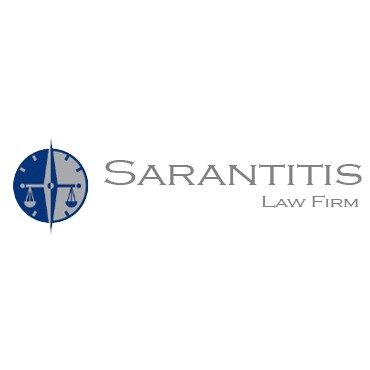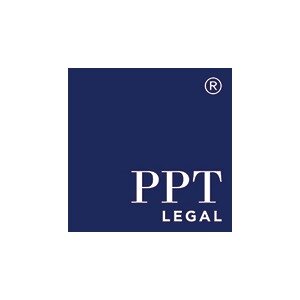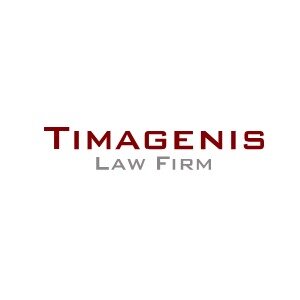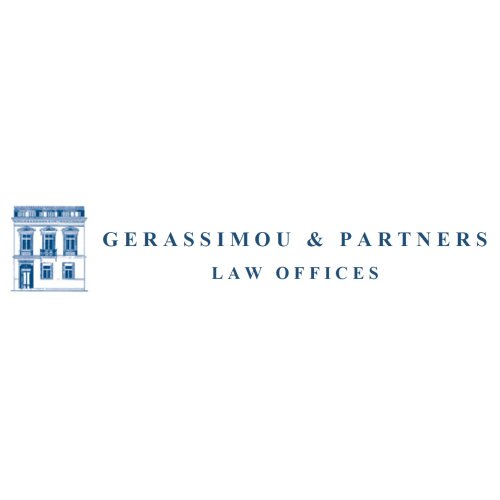Best Banking & Finance Lawyers in Piraeus
Share your needs with us, get contacted by law firms.
Free. Takes 2 min.
List of the best lawyers in Piraeus, Greece
About Banking & Finance Law in Piraeus, Greece
Piraeus, Greece, serves as a major maritime and financial hub, with a vibrant economic landscape that drives the need for robust banking and finance regulations. The region is home to numerous financial institutions, including banks, insurance companies, and investment firms, making it a focal point for financial activities. The legal framework governing banking and finance in Piraeus is influenced by both national legislation and European Union directives. Legal practitioners in this field handle a wide range of issues, from regulatory compliance to dispute resolution, providing essential support in the complex financial environment of Piraeus.
Why You May Need a Lawyer
Individuals and businesses may seek the assistance of a lawyer specializing in banking and finance for various reasons. Common situations include:
- Obtaining legal advice on financing agreements and loan documentation to ensure terms are favorable and compliant with local laws.
- Resolving disputes with financial institutions over loan agreements, payment defaults, or unauthorized transactions.
- Navigating complex regulatory requirements for banking operations or financial transactions, particularly for businesses expanding into Piraeus.
- Assistance with mergers, acquisitions, or restructuring within the banking and finance sector.
- Guidance on investment decisions and compliance with securities regulations to align with both client interests and legal standards.
Local Laws Overview
The legal landscape in Piraeus is shaped by both Greek law and European Union regulations. Key aspects include:
- Banking Regulations: Regulated primarily by the Bank of Greece, which oversees the implementation of the European Central Bank guidelines, compliance with capital requirements, and prudential supervision.
- Securities Law: Governed by the Hellenic Capital Market Commission, ensuring investor protection and market integrity.
- Financial Transactions: Legal frameworks that mandate transparency, anti-money laundering measures, and protection against fraud in financial dealings.
- Consumer Protection: Laws that safeguard consumers in financial services, including fair lending practices and anti-discrimination.
Frequently Asked Questions
What is the role of the Bank of Greece in financial regulation?
The Bank of Greece is responsible for overseeing monetary policy, ensuring financial stability, and supervising the banking sector in accordance with European Central Bank directives.
How does Greek law protect consumers in banking transactions?
Greek law provides protections such as transparent contract terms, the right to clear information, and recourse options in case of unfair practices or disputes with financial institutions.
What is the significance of EU regulations in the Greek financial market?
EU regulations ensure a harmonized approach to banking and finance, including stringent requirements for anti-money laundering, customer data protection, and financial market operations.
Do I need legal assistance for international banking transactions?
Legal assistance can be crucial for navigating cross-border transactions to ensure compliance with international laws and mitigate risks of legal discrepancies.
What are the common legal issues faced by businesses in the finance sector in Piraeus?
Common issues include regulatory compliance, managing financial risks, resolving disputes, and staying abreast of changes in financial legislation.
How are investment disputes typically resolved?
Most investment disputes are resolved through arbitration or mediation, offering faster and potentially less costly alternatives to traditional court litigation.
Can foreign investors freely invest in the Greek financial markets?
Yes, but they must comply with local laws and regulations, including those related to taxation, securities, and anti-corruption measures.
What is the process for securing a business loan in Greece?
Securing a business loan involves formal applications to banks, presentation of business plans, and negotiation of terms in compliance with financial regulations.
How do capital market regulations affect businesses in Piraeus?
Businesses must adhere to capital market regulations to raise funds through securities, ensuring compliance with disclosure and transparency standards.
What steps can I take if I encounter banking fraud?
Report the incident to your financial institution immediately, secure legal advice to understand your rights, and consider involving law enforcement if necessary.
Additional Resources
For additional support and information, consider the following resources:
- Bank of Greece: Offers guidance on banking regulations and monetary policies.
- Hellenic Capital Market Commission: Provides resources on securities law and market regulations.
- Greek Ministry of Finance: Offers broader financial legislative insights and updates.
- Consumer Protection Directorate: Assists with complaints against financial service providers.
Next Steps
If you find yourself in need of legal assistance in the area of banking and finance, consider the following steps:
- Compile any relevant documents related to your legal issue, such as contracts, correspondence, and financial statements.
- Schedule consultations with lawyers specializing in banking and finance to discuss your case and legal options.
- Verify the credentials and experience of potential legal representatives to ensure quality legal support.
- Discuss potential legal strategies and associated costs with your chosen lawyer to align expectations.
Taking these steps can help ensure you receive effective legal guidance tailored to your specific financial needs and circumstances in Piraeus, Greece.
Lawzana helps you find the best lawyers and law firms in Piraeus through a curated and pre-screened list of qualified legal professionals. Our platform offers rankings and detailed profiles of attorneys and law firms, allowing you to compare based on practice areas, including Banking & Finance, experience, and client feedback.
Each profile includes a description of the firm's areas of practice, client reviews, team members and partners, year of establishment, spoken languages, office locations, contact information, social media presence, and any published articles or resources. Most firms on our platform speak English and are experienced in both local and international legal matters.
Get a quote from top-rated law firms in Piraeus, Greece — quickly, securely, and without unnecessary hassle.
Disclaimer:
The information provided on this page is for general informational purposes only and does not constitute legal advice. While we strive to ensure the accuracy and relevance of the content, legal information may change over time, and interpretations of the law can vary. You should always consult with a qualified legal professional for advice specific to your situation.
We disclaim all liability for actions taken or not taken based on the content of this page. If you believe any information is incorrect or outdated, please contact us, and we will review and update it where appropriate.
Browse banking & finance law firms by service in Piraeus, Greece
Piraeus, Greece Attorneys in related practice areas.

















